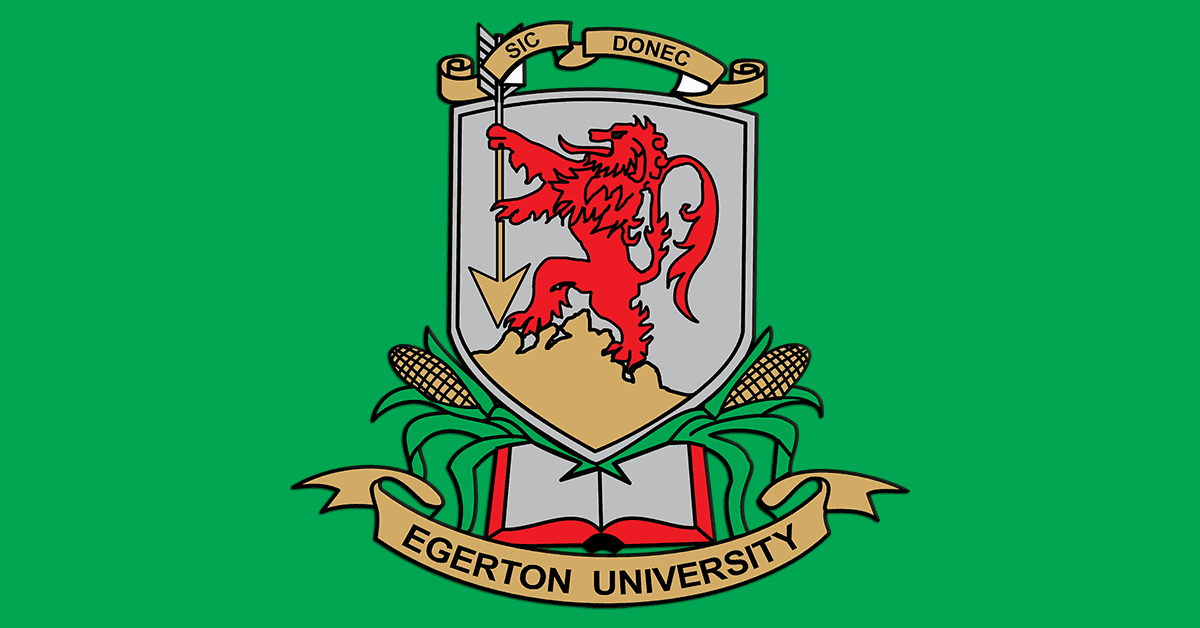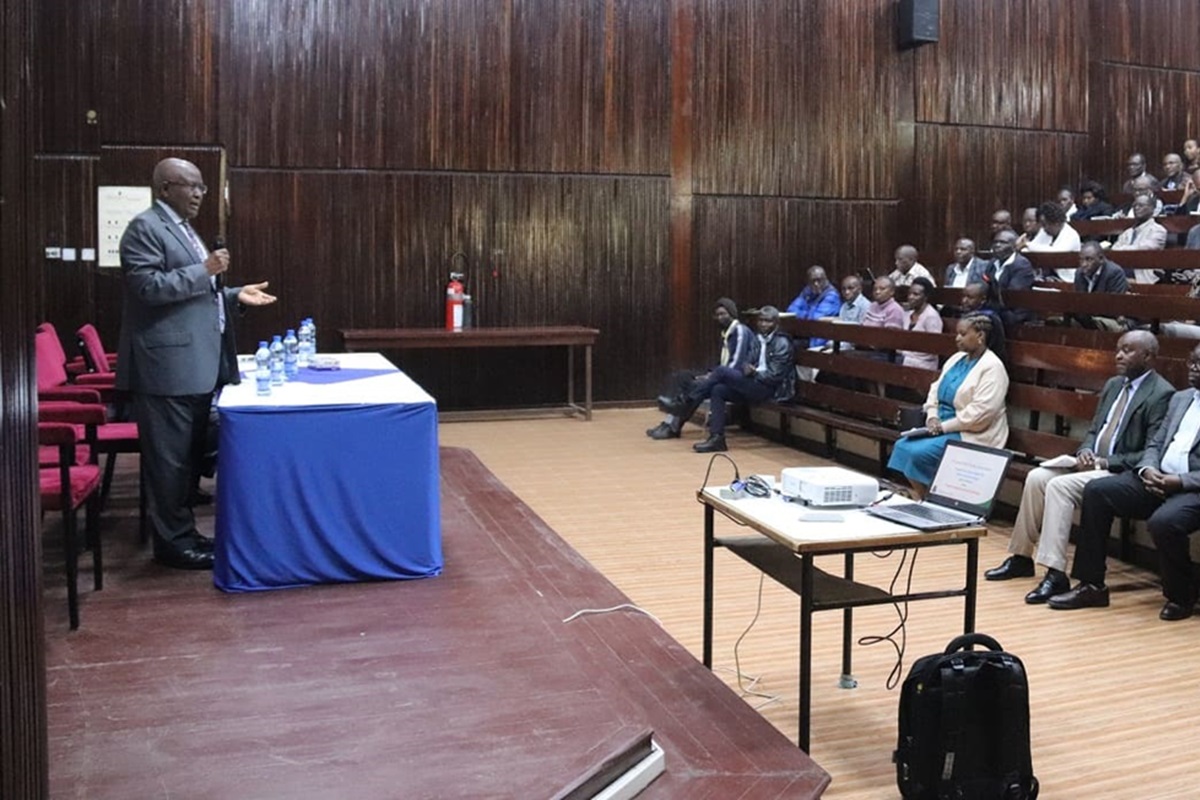Egerton University, in collaboration with Boitekanelo College, Botswana Engages Communities to Improve Nutrition and Health in Drylands
Egerton University, in her Joint Nutrition and Dietetics (N&D) Internship Programme in the Department of Human Nutrition, Faculty of Health Sciences, trained farmers in Kitui and Taita Taveta counties in improving their nutrition and livelihoods in the drylands region. Together with Egerton students, the exchange students (interns) from Boitekanelo College in Botswana focused on accelerated partnership and social support in empowering women (pregnant and breastfeeding mothers) to prepare diverse, locally nutritious foods within dry regions and embrace embracing diverse nutrition fully to offer quality diets.
 Drought tolerant Crop women farmers from Chala Ward, Taita Taveta County with Internnship Students from Boitekanelo College
Drought tolerant Crop women farmers from Chala Ward, Taita Taveta County with Internnship Students from Boitekanelo College
As part of the Feed the Future Kenya sustainability, Accelerated Value Chain Development Programme- drought tolerant crops (AVCD-DTC) value chain, the N&D Internship Programme trained the DTCs farmers on the importance of good nutrition and dietary diversity for women and young children. The students engaged the farmers in the participatory cooking of diverse diets from DTCs and other food groups to reinforce learning.
 Mrs Rose Mulyongi a pigeon peas farmer and community Health Volunteer (CHV) from Kivou at her shop, looking on Dr Maureen Cheserek, the Nutrition and Dietetics Internship Programme coordinator and the DTCsDr Maureen Cheserek, the Nutrition and Dietetics Internship Programme Coordinator and the DTCs Nutrition Specialist, said, “training will go a long way in enhancing women’s knowledge and skills and contributing towards improving nutrition outcomes of women and children in these dryland regions where stunting among young children is a major public health concern”.
Mrs Rose Mulyongi a pigeon peas farmer and community Health Volunteer (CHV) from Kivou at her shop, looking on Dr Maureen Cheserek, the Nutrition and Dietetics Internship Programme coordinator and the DTCsDr Maureen Cheserek, the Nutrition and Dietetics Internship Programme Coordinator and the DTCs Nutrition Specialist, said, “training will go a long way in enhancing women’s knowledge and skills and contributing towards improving nutrition outcomes of women and children in these dryland regions where stunting among young children is a major public health concern”.
The AVCD Programme through ICRISAT and Egerton University has trained community health volunteers across seven counties in Kenya to teach farmers using community dialogue cards. As a result, locally available nutritious and healthy foods are utilized through value addition, enriching and preparing them to fill the nutritional gaps in the target regions. The farmers were also provided with sample recipes and menus of diverse diets and encouraged to incorporate into their daily family meals.
On 21 November, the team was at Kivou Ward, Ithumbi Location, in Kitui County, where women and students were working in preparing meals using menus focusing on locally produced foods in the region while nutritional gaps of essential food items were factored. On 23 October, the students trained the DTC farmers from Chala Ward, Taita Taveta County.
Common food sources and their nutrition benefits discussed were cereals and tubers, beans and pulses, nuts and seeds, dairy products, eggs, meat, fish, poultry, organ meats, orange/yellow fruits and vegetables, dark green vegetables and other fruits and vegetables.
The farmers were encouraged to consume foods from at least five food groups per day as this is considered a good quality diet and to feed their young children with foods from at least four out of seven food groups.
Speaking to the Egerton team, Mrs Rose Mulyongi, a pigeon peas farmer and Community Health Volunteer (CHV) from Kivou Ward said she was pleased that Egerton University and ICRISAT had given her a platform to start her own business through training as a CHV and how to add value to her farm products which were well displayed in her shop near the Chief’s Camp. She was thankful to the project researchers, the partnership and AVCD Programme. The CHV for Chala Ward, Mr Peter Mbandi reiterated that the project has greatly empowered them to support behavior change of rural communities to improve their nutrition and health.
The sample menus included meals for young children, pregnant and breastfeeding women. The Programme works to promote the consumption of drought-tolerant crops to improve the nutrition of women and young children for overall good nutrition and health.







